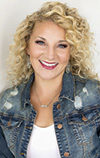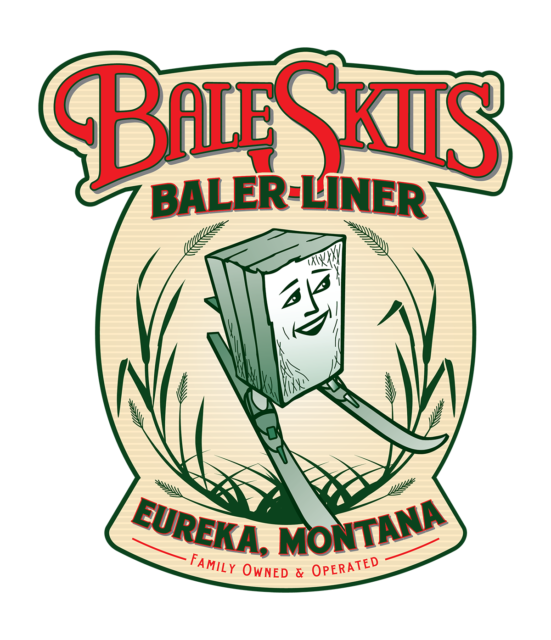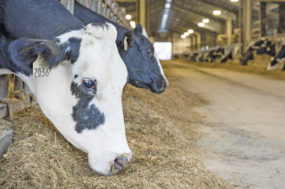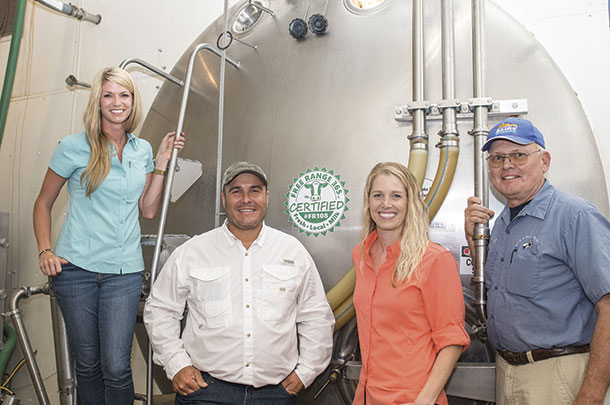
Grass-roots in every sense of the word, they are on a mission to share the story of their grass-based style of dairying through a certification called Free Range 365, in hopes of preserving it for the up-and-coming generations to carry on dairy farming as a profitable business and viable way of life in Florida.
It all started with a condiment
In May of 2017, Okeechobee County dairyman Chad Rucks picked up a bottle of mayonnaise, and what he read on the label sparked an idea that has now become his crusade: “Made with cage-free eggs.”
That one statement caught his eye, triggering a profound thought. “We’ve got cage-free cows, and we’ve got free-range milk,” Rucks says.
He and his brother Hank co-manage 1,700 cows at C&M Dairy, with pasture as a staple part of the ration. Their low-capital model of dairying leverages the subtropical climate of central Florida, where forage growth is plentiful enough for cows to graze year-round.
“Our cows are on grass 365 days a year,” Rucks says. That mayo label made him realize he had a value-added business, and he saw opportunity to market his milk to an audience willing to pay just a little bit more for a locally produced product from unconfined cows.
The Free Range 365 certification
Rucks’ entrepreneurial mind and economics background kicked into high gear, and he began doing the groundwork for establishing a program that would differentiate milk from his dairy and others like it when consumers see it on store shelves. He patented the name “Free Range 365,” and Rucks has even gone as far as patenting a red-and-white-striped milk cap, which will serve as the symbol of Free Range 365 certification.
Deemed a certification rather than a brand, Rucks’ vision is for a logo to appear on containers filled exclusively with milk from farms that meet the Free Range 365 requirements. To earn the certification, dairies must first meet the standards set forth in The National FARM Program (Version 3.0), and they must also allow their cows unrestricted paddock access every day of the year, with the exception of times when cows are being milked or fed. These paddocks are required to be 80% covered with grass or forage at all times, supply fresh water and offer some form of heat abatement, such as cooling ponds or misters.
True to their grass-roots
In 2018, Rucks reached out to three other grass-based Florida dairy farmers who saw hope and excitement in his vision. The group calls themselves the “core four.”
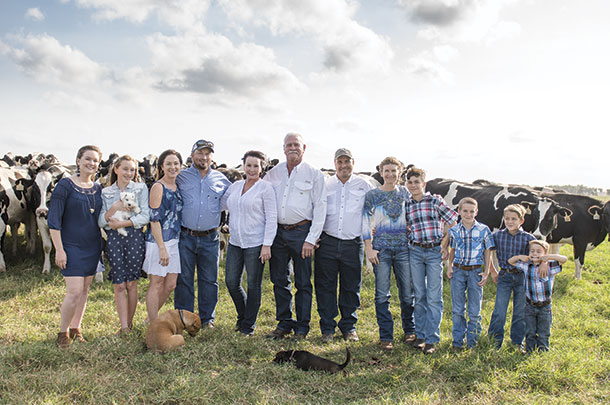
“In our group, the dairies are all a little bit different, but our main commonality is that we’re pasture-based 365 days per year,” Courtney (Nickerson) Campbell says.
Campbell is a fifth-generation dairy farmer who, in partnership with her parents, Joe and Marlene Nickerson and brother Logan Nickerson, runs three dairies under Nickerson Bar III LLC. Another branch of the Nickerson family owns Nickerson Cattle Company LLC. Brittany (Nickerson) Thurlow (Campbell’s cousin) is a partner with her father, Chris Nickerson, and her brother Holden Nickerson.
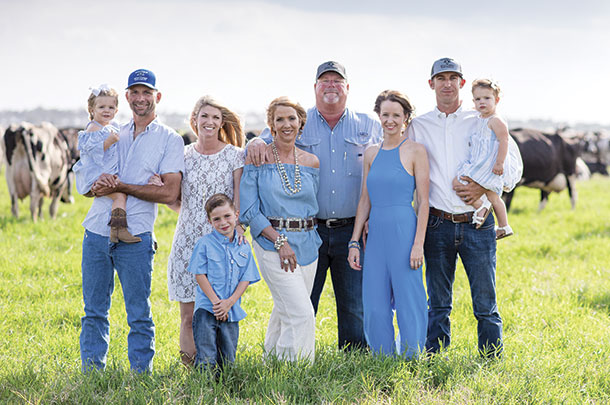 Altogether, the Nickerson operations include 4,500 cows among four dairy sites. All cows are rotationally grazed on star grass and hermathria in paddocks with cooling ponds. Their herds are 100% bull-bred, and they practice seasonal calving to mitigate the production slump of heat stress.
Altogether, the Nickerson operations include 4,500 cows among four dairy sites. All cows are rotationally grazed on star grass and hermathria in paddocks with cooling ponds. Their herds are 100% bull-bred, and they practice seasonal calving to mitigate the production slump of heat stress.
Their grandfather, the late Norm Nickerson, was a pioneer in the grazing model that became a popular way of dairying in Florida in the 1990s. He was also a mentor of the concept to Gary Keyes, a second-generation dairyman who had migrated south from Maryland and Pennsylvania.

“Norm told me that in this system, the cows feed themselves, cool themselves in the cooling ponds, and they spread their own manure,” Keyes recalls. “Keep it simple, and let the cows do the work.”
Keyes implemented the basics of this philosophy on the two dairies he now operates in partnership with Johan Heijkoop. Between the sites, located 140 miles apart, they run 1,300 cows.
‘It’s about survival’
Like elsewhere, times are tough for Florida dairy farmers. The days of above-average mailbox prices are a mere memory.
“Our milk premiums have eroded to nothing,” Rucks says. For his dairy, that loss amounts to almost $1 million each year.
Keyes adds, “Farmers are competing to get milk into plants. We’ve lost the premiums we used to get, and it’s made things tight over the past few years.”
With the premiums that allowed grass-based dairying to be profitable no longer in existence, many of Florida’s dairy farms have faded away as well. In fact, as of January 2020, there are only 74 total dairy farms left in Florida, marking a loss of more than 20 dairies in two short years.
Rucks adds, “Leveraging our competitive advantage of our long grazing season is not enough to overcome the advancements in production able to be obtained through confinement.”
However, the Free Range 365 group emphasizes that their goal is to promote their unique style of dairying without disparaging other practices such as confinement housing.
“There’s enough confusion in consumers’ minds about milk and where it comes from,” Keyes says. “We don’t want to say ours is better than anybody else’s. We just want people to know it’s different.”
That point of differentiation comes from the unique ability of the Southeastern dairymen to provide abundant grass as a feed source across all seasons. Thus, the milk carton image of cows grazing on pasture is one they can claim any time throughout the year.
“We think what we have is special, and it will resonate with a certain segment of consumers [who] do want to see cows out on grass pastures all year-round,” Campbell says. “It’s not about being competitive; it’s about survival.”
Hitting the shelves
Unfortunately, consumers don’t have the option to choose the signature striped cap from the dairy case just yet.
The group is still in search of the right processing partner to make their dreams reality, but they are challenged to find a co-packer willing to run a specialized product, which requires segregating the certified milk from the rest of the supply. All four dairy operations that are part of the Free Range 365 certification are members of Southeast Milk Cooperative. The 43,000 gallons of certified milk they produce collectively every day is currently commingled and marketed as conventional milk through the co-op’s primary customers like Borden, Dean’s and Publix. That said, conversations that once perked interest with some of these Florida-based processing plants are now on hold due to Borden and Dean’s financial hardships.
“We really need to find a strategic partner that wants to target the type of milk we produce,” Thurlow says, noting the customers their co-op deals with tend to be looking for a more conventional product.
As far as price point, they believe their certified milk falls somewhere between conventional and organic. “We don’t want to sell it at an organic price; it’s not organic,” Keyes says, “but we feel we can get a premium over conventional milk.”
Fighting for their future
Keyes and others in the group struggle to see a future for their way of dairying in Florida if the markets do not change, and that’s why they continue to devote their time, energy and resources to getting milk with the Free Range 365 certification into stores and onto the kitchen tables of consumers.
“If we can make Free Range 365 work, Johan and I will probably stay in this style of dairying. If not, there might be two less free-range herds in Florida,” Keyes says, acknowledging the production inefficiencies of year-round, grass-based dairying compared to confinement.
Rucks remains hopeful that once consumers are aware that Free Range 365 is available, the economics will favor their group’s competitive advantages of grazing.
“My goal is to let people know we are here, and we exist, and for people to choose us,” Rucks says. “That’s how I will know we’ve succeeded.”
One may wonder, why go through all of this work to create a certification for their milk?
For Thurlow and Nickerson, that “why” is answered when they look at the faces of their children.
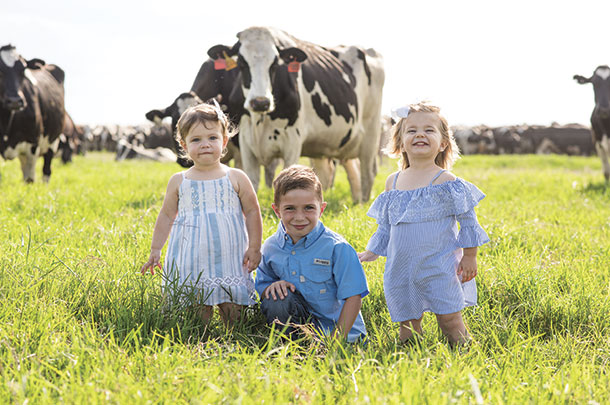
“For us, Free Range 365 means we’ll be able to continue to dairy the way our parents and grandparents have,” Campbell says. “We will continue to be dairy farmers, and we’ll be able to give our kids the chance to continue to be dairy farmers too.” ![]()
PHOTO 1: “Our cows are on grass 365 days a year,”
PHOTO 2: Four Florida dairy farmers whose cows are grazed year-round have developed the Free Range 365 certification program to differentiate milk from farms like theirs in the dairy case. From left to right, Brittany (Nickerson) Thurlow, Chad Rucks, Courtney (Nickerson) Campbell and Gary Keyes.
PHOTO 3: Chad and Hank Rucks and family
PHOTO 4: Chris Nickerson; Holden Nickerson; Brittany (Nickerson) Thurlow
PHOTO 5: Joe and Marlene Nickerson; Logan Nickerson; Courtney (Nickerson) Campbell
PHOTO 6: When asked why they are passionate about creating a certification that helps consumers understand how their milk is different, Brittany (Nickerson) Thurlow finds her purpose in providing a future for her children in dairying. Photos courtesy of Free Range 365.

-
Peggy Coffeen
- Editor
- Progressive Dairy
- Email Peggy Coffeen
Four dairy operations are pioneering the Free Range 365 certification:
• C&M Rucks Dairy
Chad and Hank Rucks
Okeechobee, Florida
• Nickerson Cattle Company
Ten Mile Grade Dairy
Chris Nickerson; Holden Nickerson;
Brittany (Nickerson) Thurlow
Hardee County, Florida
• Nickerson Bar III LLC
Lemon Grove Dairy
Wauchula Dairy
Zolfo Springs Dairy
Joe and Marlene Nickerson; Logan Nickerson;
Courtney (Nickerson) Campbell
• Milk-A-Way Dairy and K&H Dairy
Gary and Kathy Keyes
Johan and Trisha Heijkoop
Sumter and Lafayette counties
